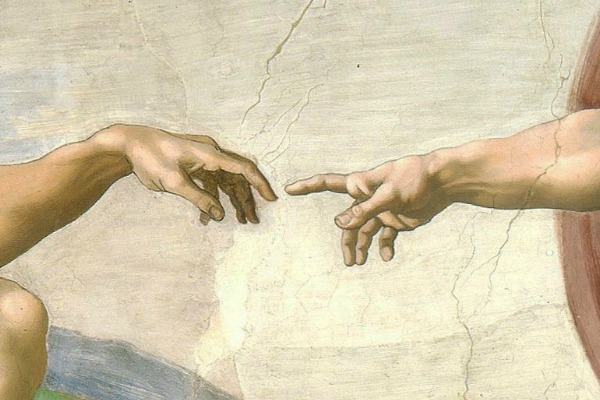
Kenan Camurcu
I recently applied to participate in the "Zuhal Topal'la Yemekteyiz" (Zuhal Topal's Come Dine With Me) cooking competition broadcast on TV8. Before a candidate can join the show, they go through an interview that can be considered an audition—a type of casting process. This is recorded, watched by the production officials, and a final decision is made. All of these stages were passed in my application, and I was accepted. They notified me of the week and shooting day via a WhatsApp message and wished me luck.
Even without a written script, they shoot the program by assembling a suitable cast of character archetypes and generally get the results they expect.
The expected result is, of course, a heated, high-strung, tense, and entertaining dialogue and argument environment that is presumed to bring in ratings. The contestants, rather than focusing on being better than their rivals, adopt a strategy of discrediting, pulling down, and devaluing their rivals and the food they make. They see everything as fair game for this. To justify giving low scores, they find fault with the food, mock the opponent's demeanor, question their clothing (except for headscarves, which are off-limits; they can say what they want about low-cut tops and other attire), find flaws in their physical features, engage in random arguments, and so on. This keeps the show fast-paced.
Despite being a cooking show, not a single sensible word about food is uttered throughout the program. There must be an argument: jabs, fights, verbal spats. Nevertheless, the show struggles to make it into the top 20 of total and AB group averages. The show's continuation is probably due to a personal favor for Acun Ilıcalı.
My request to participate in the competition was, of course, related to my interest and work in gastro-ethnography or food anthropology and my cooking skills. I promised to do something different with my Levant-based fusion and surf-and-turf menu design. They found it interesting that I had to write my menu in detail, plan it schematically, and provide technical and conceptual information far in advance. No one had done this before. They were very eager for me to join.
Winning the competition by cooking was certainly my goal, but more than that, I wanted to observe the environment as a subject in the case study of the concept of "becoming nobody," which I have been working on for some time.
While the process was proceeding quite fast, with great willingness and enthusiasm, the show's producers suddenly shifted gears. The level of communication dropped and eventually became zero. It was clear something was wrong.
Of course, I understood the producers' problem. They had already said that I was very different from the standard contestant profile. The authorized person, likely focused on tracking down lynching-related topics in the authoritarian political regime, probably Googled me, and when they found "someone" instead of the show's standard profile of "nobody," they panicked. But they couldn't say anything to me. When I said that I sensed they had changed their minds and that an offer to withdraw from the competition from me would make them feel better, they were truly relieved.
This is good news and a beacon for the perpetrators of the current authoritarian regime. The chilling nature of the malevolent order they have established has permeated into the capillaries, and the reflex to submit to the nightmare is working perfectly.
In the massive hegemony of religious despotism, it's not just the information media that has been engineered to "become nobody" with so-called news programs, staged debates, and propaganda disguised as analysis; even an ordinary, simple, low-level entertainment and celebrity program like the one mentioned in the summary above has now started to serve and remain loyal to the engineering of "becoming nobody." The moment "someone" appears before them, they are triggered, go on high alert, and do what's necessary. They don't need warnings or instructions from above. The chain of upholding authoritarianism is on autopilot, and everyone knows exactly what they need to do.
This is why the cultural basis of a political regime where the leader (the "Rehber" in Iran, the "Reis" in Turkey) is immune to principles and values like election, accountability, consultation, and transparency is loyalty. And for this very reason, disloyalty is a serious crime.
My Contribution to Sociology: "Becoming Somebody" Instead of "Individualization"
Islamists love the cliché that the Enlightenment shattered traditional structures and that the individual emerged after this disintegration. This is because they have a strange conviction that ending a person's personality and dignity through the mass-formation of a community and umma pleases Allah. For this reason, Islamism is necessarily a fanatical form of authoritarianism. It never likes human standards such as pluralism, tolerance, empathy, democracy, and respect for rights and law.
However, if the concept of community and umma meant the destruction of the individual within a mass, it would not be stated in al-Nahl 120 that Abraham, all by himself, alone, in a state of solitude and seclusion, was an umma. What made this possible was his state of humble devotion (khushūʿ) and being a ḥanīf (opposed to paganism).
Khushūʿ is the awe felt in the face of the majesty of creation. Ibn Mas'ūd (d. 652) said it means "obedience." (Ibn al-'Arabī, Aḥkām al-Qurʾān, 3/167). This is the feeling that Schleiermacher also called the "feeling of obedience," which Rudolf Otto corrected to the "feeling of creatureliness." (Otto, The Idea of the Holy, p. 40). This metaphysical experience cannot be lived out in a mass; it must be a solo journey. Like the long periods of seclusion and solitude of the prophets before they encountered revelation. A person who matures through this religious (or philosophical) experience cannot remain a "nobody." They absolutely become a "somebody."
Have we now fully understood what the ideological fanaticism of Islamists—which destroys the individual within religious mass-formation—is actually eliminating? And their thinking that it is a virtue to declare jihād against the individual of the Enlightenment—let's just call it sheer ignorance.
Enlightenment secularists love the concept of "individualization." They value it for expressing a person who has broken away from traditional structures whose source is religion. Provided that this same person is not trapped in the prison of alternative traditional structures born from other ideological dogmas, individualization is, of course, positive. Despite this, the concept of "becoming somebody" that I propose is more appropriate.
An individual is a person who has become free by breaking away from traditional ties. A somebody, on the other hand, is a person who has made themselves public. Johann Hari illustrates the person who makes themselves public strikingly with the example of the long-lasting protest for Nuriye Cengiz, who faced eviction from her social housing in Berlin's Kotti neighborhood due to urban renewal, where every different group, from the marginal to the mainstream, was a component. (Hari, Lost Connections, p. 200ff).
For this reason, being a somebody is undoubtedly exhausting, wearing, and risky. Being a nobody, however, has numerous advantages. You can, for example, find a place for yourself in the politico-economic regime of religious despotism. But once you become a somebody, all doors will close in your face. An invisible hand won't let you breathe anywhere. You will think you are becoming paranoid. But you're not.
The pharaoh and his people mentioned in the sacred texts certainly carry a literal meaning with their historicity and ethnography. But looking at the matter from a sociopolitical perspective is neither an undue exaggeration nor wrong at all.
I wrote about my own personal history and experience regarding the price of being a somebody. There must be others who have had similar experiences. And it would be a good idea for those who haven't to take a look to get an idea.
Translated by Gemini




0 Comments